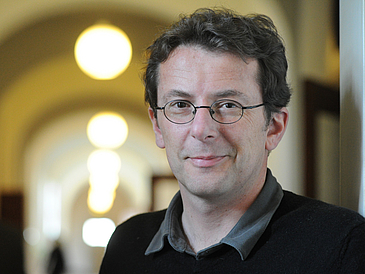Did the military and conscription influence development of the welfare state? And if so, to what extent? These are the research questions Professor Herbert Obinger wants to pursue in a project called “Conscription, the military, and development of the welfare state in Europe”. The research is being made possible within the context of a Reinhart Koselleck Project recently granted by the German Research Foundation to the University of Bremen’s Professor for Comparative State Activities and Comparative Social Policy. The Foundation will fund the project in an amount of around 1 million euros: further evidence of the trust it places in the University of Bremen.
In the US American discussion, welfare benefits for war veterans are generally seen to have played a significant role in shaping the specific form of the US welfare state. In contrast, the European discussion has been dominated by the influence exerted by industrialization and proletarianization, as well as the rise of trade unions and social democratic movements. And this in spite of the fact that Europe has served as the stage for two world wars. Preparation for war, general mobilization, the devastating course of war and its catastrophic consequences therefore provide ample food for thought as to where and with what different results military service and conscription perhaps influenced the development of social and education policy on this side of the Atlantic: from the call for more healthy and better-educated recruits from the industrial centers, through prevention of famine, up to help (from time to time also lack of it) for the wounded victims of war, the bereaved, refugees, enslaved workers, prisoners, bombed-out and homeless people – all those robbed of life and limb, health and future perspectives.
The research to be carried out in the Koselleck project pursues two main objectives. On the one hand, to arrive at a systematic comparative assessment of the influence of the military and conscription on the welfare state beyond the countless individual destinies; and on the other hand, to investigate to what extent national differences in the military and conscription perhaps led to differences in education and social policies.
If you would like to have more information on this topic, please contact:
University of Bremen:
SOCIUM – Research Center Inequality and Social Policy
Prof.Dr. Herbert Obinger
Phone: +49 421 218-58567
e-mail: herbert.obingerprotect me ?!uni-bremenprotect me ?!.de

